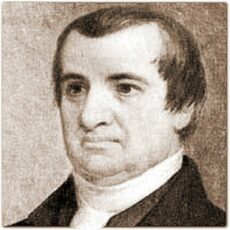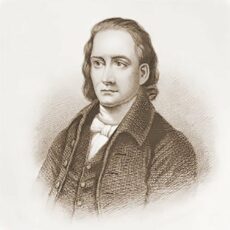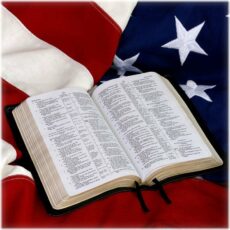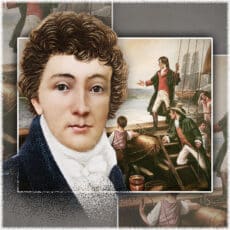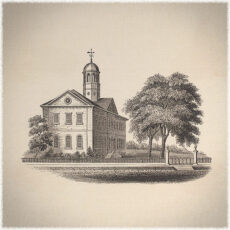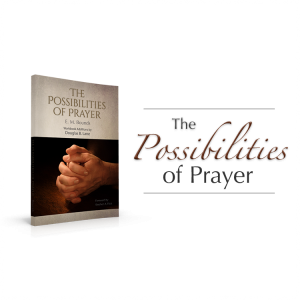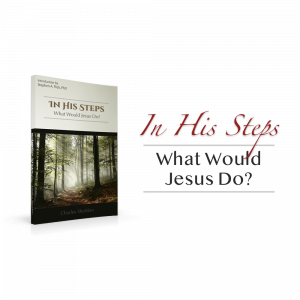Results for: "American History"
The results for your search of "American History" are listed below. Please click on the title or image to navigate to the desired item.
Please check the page navigation indicator at the top right or bottom right of the results to determine the number of search pages containing articles with the keyword(s): "American History".
Abraham Clark
American History, Christian Calendar (Holidays), Christian History, September Articles, Signers of Declaration of Independence
September 15, 1794 Death of Signer, Abraham Clark Abraham Clark (February 15, 1726 – September 15, 1794) was an American politician and Revolutionary War figure. He was delegate for New Jersey to the Continental Congress where he signed the Declaration of Independence and later served in the United States House of Representatives in both the Second and Third United States Congress, from March 4, 1791, until his death in...Read more... Read more... -->
John Penn
American History, Christian Calendar (Holidays), Christian History, September Articles, Signers of Declaration of Independence
September 14, 1788 John Penn, signer of the Declaration of Independence, passed away John Penn (May 17, 1741 – September 14, 1788) was a signer of both the United States Declaration of Independence and the Articles of Confederation as a representative of North...Read more... Read more... -->
Congress “Purchases” and Endorses the Bible
American Founding Fathers, Bible, Role of Pastors
September 11, 1777 Congress proposes purchase of 20,000 Bibles Justice David Josiah Brewer After presenting more than eighty pieces of evidence of America's Christian origin, Supreme Court Justice, David Brewer—writing the majority decision for a unanimous court—arrived at this same conclusion in 1892: ". . . many other matters which might be noticed, add a volume of unofficial declarations to the mass of organic utterances that this is a Christian nation."[1] In his classic work, The Christian Life and Character of the Civil Institutions of the United States,[2] Benjamin F. Morris discusses...Read more... Read more... -->
Francis Scott Key — The Christian Patriot
American History, Christian Calendar (Holidays), History of Hymns, July Articles
September 13-14, 1814 Francis Scott Key pens National Anthem Where we live is not determined by what is around us, but by what is within us. The Psalmist reflected upon God's goodness to his life and offered the Lord the praise that was due him. In verse seven, the Psalmist begins to recount the Lord's goodness to the Israelites through their deliverance from Egypt. In verse thirteen, he notes the fact that the Israelites "soon forgot what he had done." Their hearts of divine praise were soon displaced by hearts of self-pity and complaint. As a result, they turned from God and lived in pain...Read more... Read more... -->
The Christian Founding of Harvard
American History, Christian History, Role of Pastors
September 8, 1636 Harvard first convenes classes Only eighteen years after the Pilgrims landed in the New World, Harvard College, the first of the Ivy League schools, was established for the sake of educating the clergy and raising up a Christian academic institution to meet the needs of perpetuating the Christian faith. All of the Ivy League schools were established by Christians for the sake of advancing Christianity and meeting the academic needs of the New World. No better summary of this effort can be offered than the one provided by the founders themselves: After God had carried us...Read more... Read more... -->


